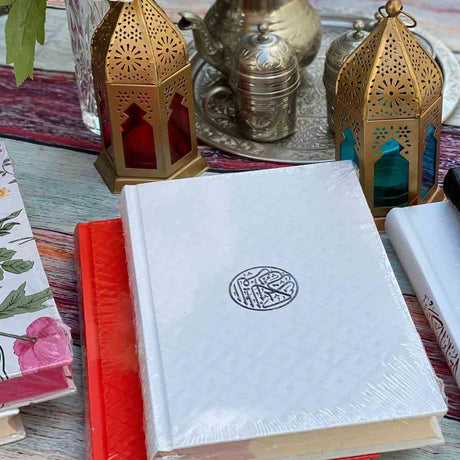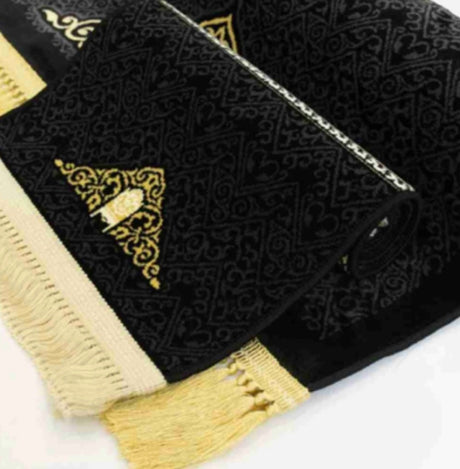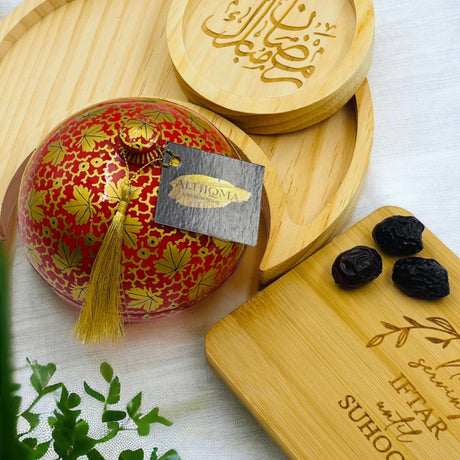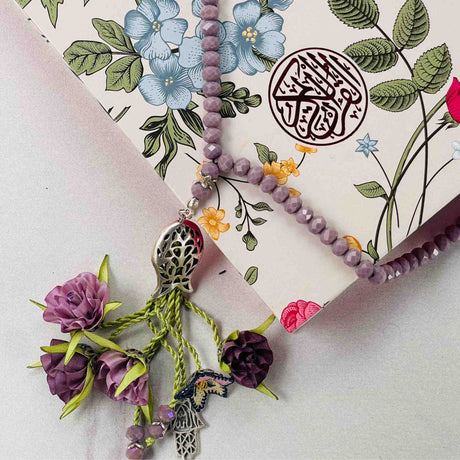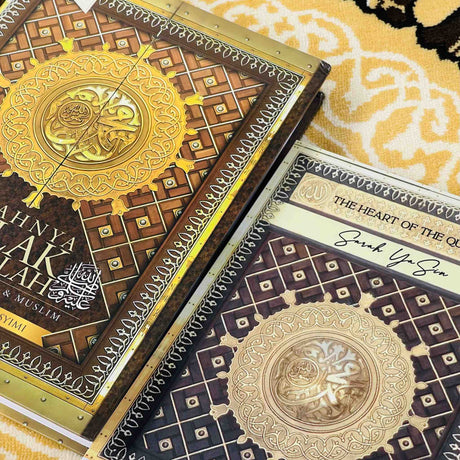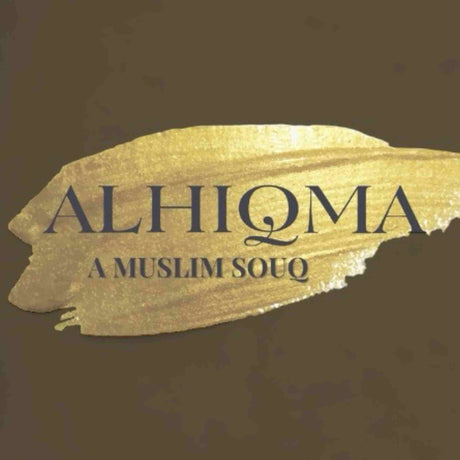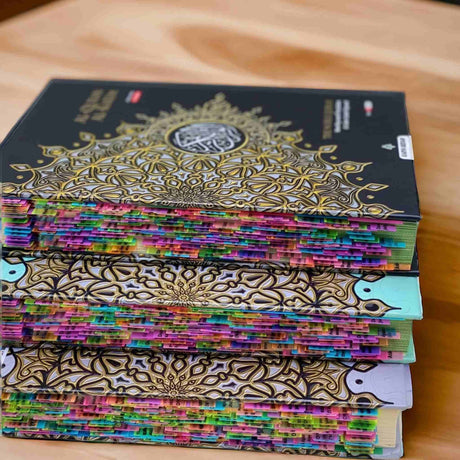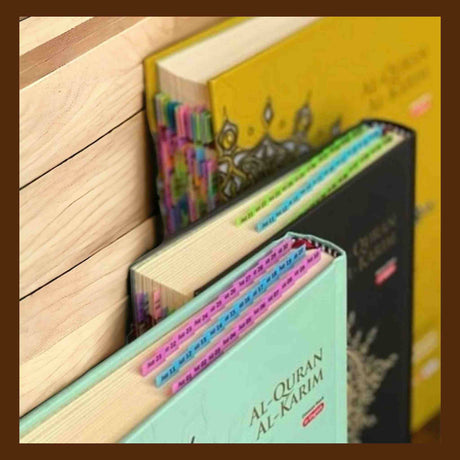
Quranic Versus Life and Purpose
By Sheela M.Ahmed
Discover 7 powerful Quran verses about life's purpose with practical guidance for modern Muslim families seeking meaningful, faith-centered living.
Read moreSave 10% on your first order when you join our mailing list.
Ever wondered how Quran verses relate to our daily lives? Discover the connections with our newsletter.
Chat With Us
Talk to our team via chat
No-Contact Delivery
Free for local orders over $250.00
Salam Feroz, we have received the tasbih. I and my daughter love the simple yet exquisite tasbih designs.I have been searching these past mths to get these tasbihs. I wanted to gift my daughter & myself. It makes beautiful & meaningful gifts. Alhamdulillah I'm able to get the tasbih from alHiqma.Thanks Feroz ⚘️
Noor Aini Ahmad
They helped rush my bulk orders on short notice for two weeks straight. They even volunteered to stick our company stickers for free as their main goal was to deliver everything on time. Got the orders neatly packed with stickers applied perfectly. The quality was top-notch for about 2,500 items. overall, they were very efficient, replied promptly to our text regardless of what time and their customer services was awesome too!

Schenker Singapore (Pte) Ltd - Qian Ning Goh
I dm-ed the admin to check for stock availability and response was really quick. Admin assisted with the needful and carted the items online. Items were delivered on the same day too just few hours after I placed my order. Syukur alhamdulillah. This is my 2nd purchase with them and definitely not the last. Thank you for the excellent service

Nisa Ramli
Awesome warm welcome experience had with the Great And lovely couple shop owners. Bought the Rainbow Al-Quran with customised tags. May Allah bless them for accommodating my special request and coming back to their shop during their off day. Thank you so much. Highly recommend to all.
Mohamed Haider Shah
It's my first Time ordering from them and it was a really pleasant experience! they were really accommodating to my request and answered my queries promptly. really appreciate the help they have given! thank you so much :)
Natacha Tan
Not the first time ordering from AlHiqma and every transaction has always been efficient and pleasant. Ordered last min and needed it urgently. It was swiftly prepared and received in perfect condition and timely manner, as always. Thank you AlHiqma and continue the great service!
Amalina Arif
Assalamualaikum wr.wbTerimakasih kpd AlHiqma Islamic Gift shop for giving their outmost amazing service to me for the past 3 yrs!They have wide selection of AlQuran with different Types(1,2 &3) and beautiful covers to choose from.Thank you for rendering your kindest service and being patience to my needs.All the 6 Alqurans that I've bought from them (including Majmu bks) were of different Types, covers, and sizes. All of these are suitable for different ages too. Bought for my 3 kids after they khatam their Muqaddam. They are of aged 15, 12 and 9 as of 2022. They have wide range of sizes too. Do check their website or message them for faster enquiries.It's been a pleasure purchasing from them.Thank you AlHiqma !
Nur Hudzaifah Samuri
I got the most beautiful Quran with English translation from here while I was in Singapore. From then I learnt a lot of knowledge and Quran became my go to guide. I would say they have the best Quran collection. I couldn't see the other Islamic collection for the small time I was there in the stall. I would highly recommended and looking forward to visit again when I am in Singapore. SAJID, From India

Sajid Hossain
It was an amazing experience with Al Hiqma. The seller was friendly and listen to my needs. Items purchased were up to my satisfaction, especially the Quran with tagging service. Definitely will come back for more products. A place worth buying for Islamic Materials. Once again, thank you for both the excellent customer service and good quality products.
Sarah Chand
I love the rihal it’s so light and has beautiful design. Many of my friends love it as I have given them as my guest gift for qatam Al-Quran event.I also bought the ottoman sajadah which is thick and beautiful for my special guests.Thank you Al-Hiqma for selling them to me.

Rohani Ismail
Save 10% on your first order when you join our mailing list.
Ever wondered how Quran verses relate to our daily lives? Discover the connections with our newsletter.
Ethically made
Eco-friendly

By Sheela M.Ahmed
Discover 7 powerful Quran verses about life's purpose with practical guidance for modern Muslim families seeking meaningful, faith-centered living.
Read more
By Sheela M.Ahmed
Discover 7 powerful Quran verses about patience (sabr) with practical guidance for modern Muslim families seeking strength through daily challenges.
Read more
By Sheela M.Ahmed
Learn the powerful prophetic dua for trials that transforms hardship into hope and active trust in Allah's perfect plan.
Read more
By Sheela M.Ahmed
A beautiful dua to seek forgiveness for others and foster unity in the Muslim ummah.
Read more
By Sheela M.Ahmed
Muharram marks the Islamic New Year with sacred opportunities for fasting, reflection, and spiritual renewal. Learn how to embrace this blessed month meaningfully.
Read more
By Sheela M.Ahmed
Islamic wisdom for husbands on leading with kindness, mercy, and respect—practical guidance for modern Muslim families in Singapore.
Read more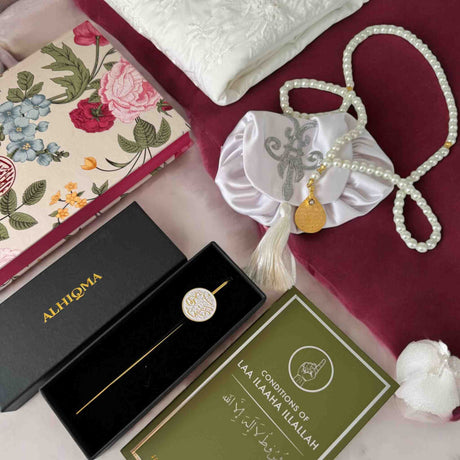
By Sheela M.Ahmed
Find strength in Quran verses during difficult times. Islamic wisdom for hope, patience, and divine support when life feels overwhelming.
Read more
By Sheela M.Ahmed
Transform your Zulhijjah with authentic Islamic practices, practical tips for busy families, and premium spiritual tools from Singapore's trusted source.
Read moreSave 10% on your first order when you join our mailing list.
Ever wondered how Quran verses relate to our daily lives? Discover the connections with our newsletter.
Save 10% on your first order when you join our mailing list.
Ever wondered how Quran verses relate to our daily lives? Discover the connections with our newsletter.



